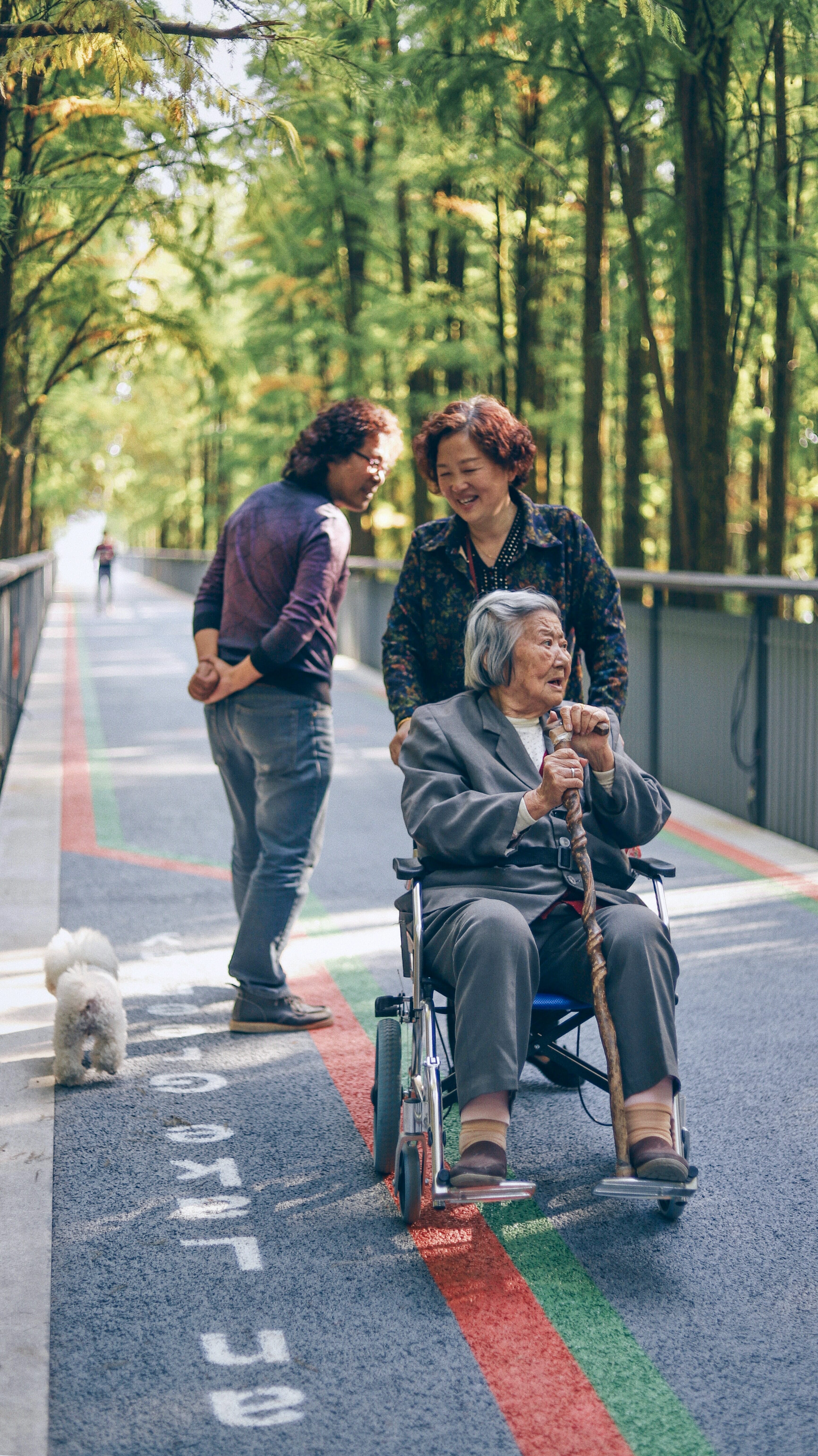When Caregiving Becomes An Identity

“Navigating my parents’ care in and out of the health care system was a daily experience for me as I did not live in the same city. It meant retiring from my chosen and much-loved profession to have more time available for their often unpredictable care needs. There was no bitterness or resentfulness. My parents had cared for me all of my life and it was my turn to take care of them. But, sprinkled in with my parents’ aging care needs was the growth of my own family. Children being married and having children of their own. It meant an ever-growing circle of people large and small needing my support and hands on help. I became the poster girl for multi-generational caregiving, often juggling the needs of four generations. There was certainly even less time for the volunteer work that I was doing in an attempt to replace the joy and meaning I found in my work. Caregiving became my identity.”
– Briana Zur

Caregiving touches everyone’s life; from short periods to many years, as a giver or receiver. With a large ageing population, chronic illness is rising, and hospital stays are becoming shorter, which means that our healthcare system heavily relies on informal caregivers.
Caregiving is often performed by people who are themselves becoming ill or disabled. Caregivers may have limited training or none whatsoever in moving, lifting, and turning very ill adults, yet continue to perform these strenuous physical activities daily.
Not All Caregiving is Alike
Canadians who are living with dementia often must rely on family members and friends for support. In 2012, a Canadian census found that 480,000 Canadians provided care to someone with dementia. Those of us caring for someone with dementia differ from other caregivers as we tend to be older, more likely to be caring for parents or in-laws, and less likely to live with the care receiver. Caregivers to someone with dementia also spend 1.5 times the average of 9.6 hours per week than other caregivers— an average of 13.6 hours per week. Caring for someone with dementia takes a toll on health, social, and financial well-being. For instance, those of us who care for someone with dementia have less time to spend on our activities, we often work reduced hours, and may have to exit the labour force to provide care leaving us in financial hardship.
Why Be a Caregiver?
Some of us experience caregiving to be a deeply rewarding and meaningful experience. We experience the companionship and bond-building that happens between the caregiver and those we care for. We are allowed to get to know and cherish our loved ones in ways that are new to us. As well, caregiving is work that affects real change in someone’s life, which many find personally fulfilling.
Some of us may experience caregiving in a way that enables our spiritual journey; finding a feeling of spiritual growth through the experience of sharing struggles with another while making sense of some of life’s biggest challenges alongside someone facing them.
Making the most out of our caregiving experience involves developing a close relationship with the person we are caring for, choosing to take on caregiving tasks and being able to care for ourselves throughout the process. The last part is where caregiving may become a challenge.
Challenges For Caregivers
Caregivers pour an enormous amount of physical and emotional energy into caregiving and can often suffer serious life course setbacks.
Researchers have identified several core challenges reported by caregivers:
- Finding time for oneself;
- Peace of mind regarding their loved one’s security at home;
- Balancing work and family responsibilities;
- Managing emotional and physical stress;
- Knowing how to communicate with healthcare professionals;
- Feelings of insecurity about one’s ability to provide the best care.
Caregiving can strain even the most resilient of us. While it may be hard to admit, some of us are doubtful and fearful. What if my mother falls before I catch her? What if my father-in-law mixes up his medication and takes the wrong one? In addition to self-doubt, which can blossom into fear of failure over time, caregiving can also lead to:
- Tiredness;
- Resentment;
- Feeling out of control;
- Losing a sense of self;
- Financial hardship;
- Inadequate social life;
- Marital/sexual issues with a partner;
- Loneliness and isolation;
- Feeling unappreciated;
- Irritability, Anxiety, Fear;
- Boredom, Guilt, Grief, or Depression
Recognizing these feelings will allow us to find productive ways to express and cope with them.
Caregiver burden may be experienced when a caregiver gives so much over an extended period and without proper supports or rest. Caregiver burden can negatively affect both our health and that of the person we are caring for. Health risks include emotional stress, lower morale, a weakened immune system, raised blood pressure, and even an increased risk of mortality.
When Caregiving Becomes a Burden
Caregivers tend to underuse available health and human services with only 25% of caregivers reporting that they requested information about financial help; just 18% said they received formal training, and only 18% made use of transportation services. Caregivers are about five times more likely to express interest in a service than to actually use one. Whether this is due to choice paralysis or lack of time, caregivers are cut off from important community ties and resources.
Though most caregivers take on this role with the best of intentions, the magnitude of the task may leave many feeling unprepared. The lack of training and information from healthcare professionals is a significant source of caregiver burden. Too often, this information amounts to a set of verbal instructions given within hours of our loved one’s discharge from the hospital. This leaves us little time to ask questions or to practice the skills that we are expected to instantly master. The right combination of information and skills training can mean the difference between a successful, rewarding experience, and burnout or a crisis.

“My occupational therapist forced me to consider myself and my own well-being as well. In practical terms, we talked about dealing with Irv emotionally, my nutrition, sleep, daily habits, leisure and pleasure activities, social interchange with friends, and telephone use. I began to feel like a person again and not “just” a caregiver.”
– Tema Title
Occupational Therapists Work With Caregivers
Occupational therapists are uniquely trained to address a wide range of caregiver concerns. They recognize caregivers as ‘hidden patients’ in the healthcare system who require attention for our challenges. Caregivers are also recognized as ‘hidden healthcare team members’ who need to be a part of the patient’s care strategy, including making plans following their discharge from the hospital.
The following is an overview of the steps occupational therapists take to work with and assist caregivers on our journeys.
Assessment
Occupational therapists are committed to providing care tailored to the client. Part of this process involves sitting down with the caregiver and care recipient to identify our values, needs, and challenges, as well as problem-solving ways to move forward. Significantly for caregivers, occupational therapists are keen to understand how we find caregiving rewarding so these aspects can be reinforced.
Other areas that occupational therapists look at include background factors, available social and family supports, and the reasons we decided to take on the caregiving role.
Information sharing and skills training
According to field experts, helping loved ones with daily living activities is the most stressful activity of caregiving.
In collaboration with other health team members such as nurses and physiotherapists, occupational therapists provide the information and skills training needed to cultivate our caregiving role. Occupational Therapy has been found to lower caregivers’ levels of depression and frustration.
Below are some of the problem-solving areas an occupational therapist might focus on:
- Stress management and coping strategies;
- Managing our time and energy to find balance in life;
- Identifying community resources, supports, and supplemental services;
- Finding housing and long-term care;
- Understanding the care recipient’s specific medical conditions;
- Dealing with family issues;
- Communicating effectively with our loved ones and the care team;
- Managing the activities of daily living;
- Navigating the healthcare system.
Supporting self-care
While we are pouring our energy into caring for someone we love, it’s important to remember that it’s not selfish to take care of ourselves. occupational therapists stress the importance of attending to our own needs and caring for our mental, emotional, and physical health. They may help us find ways to engage in all our life roles, not just the role of a caregiver. By prioritising self-care, we are also safeguarding the health and well-being of our loved ones. What good will we be to the people we care for if we become ill?
Caring for ourselves may mean asking for help. Learning to ask for help is a skill in itself, but we may be hesitant to do so for a host of reasons including issues of privacy, pride or fear of being judged. Caregiver burnout is nothing to be ashamed of. At some point, we all need support and a break from what can be an overwhelming role.



